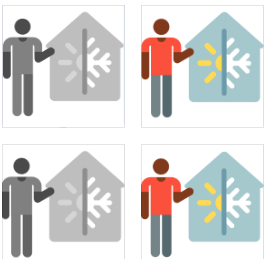There are some modes in images, the mode of an image defines the type and depth of a pixel in the image. In this tutorial, we will list all modes supported by python pillow.

All modes supported by python pillow
1 (1-bit pixels, black and white, stored with one pixel per byte), the value is in 0-1.
L (8-bit pixels, black and white), the value is in 0-255.
P (8-bit pixels, mapped to any other mode using a color palette), the value is in 0-255.
RGB (3×8-bit pixels, true color), the value is in [0-255, 0-255, 0-255].
RGBA (4×8-bit pixels, true color with transparency mask), the value is in [0-255, 0-255, 0-255, 0-255]
CMYK (4×8-bit pixels, color separation)
YCbCr (3×8-bit pixels, color video format)
LAB (3×8-bit pixels, the L*a*b color space)
HSV (3×8-bit pixels, Hue, Saturation, Value color space)
I (32-bit signed integer pixels)
F (32-bit floating point pixels)
LA (L with alpha)
PA (P with alpha)
RGBX (true color with padding)
RGBa (true color with premultiplied alpha)
La (L with premultiplied alpha)
I;16 (16-bit unsigned integer pixels)
I;16L (16-bit little endian unsigned integer pixels)
I;16B (16-bit big endian unsigned integer pixels)
I;16N (16-bit native endian unsigned integer pixels)
BGR;15 (15-bit reversed true colour)
BGR;16 (16-bit reversed true colour)
BGR;24 (24-bit reversed true colour)
BGR;32 (32-bit reversed true colour)
We can get and convert image mode in python pillow. Here is the tutorial:
Python Pillow Get and Convert Image Mode: A Beginner Guide – Python Pillow Tutorial